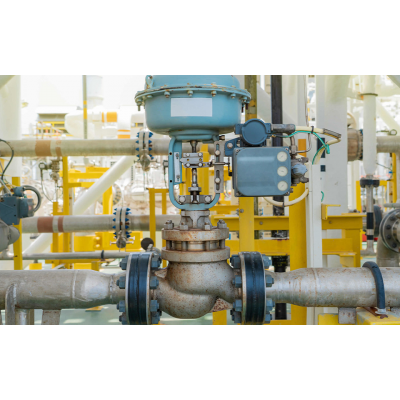Project Case
Brazilian industrial application case Successful application of pneumatic control valve in process control

In the process of industrial production, flow control is a crucial part. As a key component in the process control system, the pneumatic control valve has numerous successful cases in industrial applications.
First of all, let's understand the basic principle and structure of pneumatic control valves. Pneumatic regulating valve is an automatic regulating device that uses air source pressure to drive the actuator and adjusts the flow area and flow of the medium by controlling the position of the valve core. It is mainly composed of valve body, valve core, actuator and supporting accessories. Pneumatic control valve through the actuator to lift or rotate the valve core, so as to change the flow area of the medium, to achieve the accurate control of the medium flow, pressure, temperature and other parameters.
In industrial production, pneumatic control valves are widely used in the regulation and control of various fluid media. For example, in chemical production, pneumatic control valves can be used to control the flow, pressure and temperature of various liquids and gases to ensure the stability and safety of the production process; In the power industry, pneumatic control valves can be used for the flow regulation of boilers and steam turbines and other equipment to ensure the efficient and stable operation of equipment; In the field of petrochemical industry, pneumatic control valves can be used for the flow control of crude oil transportation pipeline system to ensure the safety and efficiency of crude oil transportation.
In these industrial applications, the role played by pneumatic control valves is also irreplaceable. First of all, the pneumatic control valve has the characteristics of fast response speed and high control accuracy, which can quickly respond to the system instructions, and achieve the accurate control of the medium flow rate, pressure and other parameters. Secondly, the pneumatic control valve has the characteristics of simple structure and high reliability, which can operate stably in harsh working environments and has a long service life. In addition, the pneumatic control valve also has the advantages of wide application range, easy installation and maintenance, and can meet the needs of different industrial scenarios.
In actual industrial production, the successful application cases of pneumatic control valves are also numerous. Taking the chemical industry as an example, a chemical enterprise uses pneumatic control valves to accurately control the liquid flow in the production process, thus realizing the automation and intelligence of the production process, and greatly improving the production efficiency and product quality. In the power industry, a power plant uses a pneumatic control valve to control the flow of the boiler combustion system, which effectively improves the combustion efficiency and energy utilization rate, and reduces energy consumption and environmental emissions. These successful application cases fully prove the importance and value of pneumatic control valves in industrial production.
In short, as a key component of the process control system, the pneumatic control valve plays an irreplaceable role in industrial production. Its rapid response, precise control, stability and reliability make it an indispensable equipment in various industrial applications. It is believed that with the continuous progress of science and technology and the continuous development of industrial technology, there will be more and more successful cases in industrial applications, bringing greater benefits and value to industrial production.
